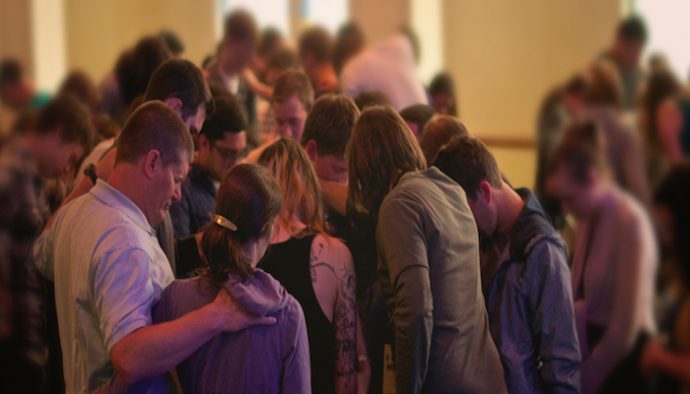“Lord, teach us to pray” (Luke 11:1).
Jesus was the right person for the disciples to ask. This is the fifth time thus far in the book of Luke records that Jesus was praying. He prayed, and He prayed a lot. Jesus knew how to pray, so it’s only right that they ask Him to teach Him. Furthermore, the answer to this question was very important to Jesus.
Often in the gospels when Jesus is asked a direct question he responds in an indirect fashion. Sometimes he will respond with a question right back. Other times He will tell a story to illustrate His point. But none of that here. Jesus doesn’t say, “Why do you ask?” Nor does He say, “There was once a farmer with some seed…” Not here. Not with this question. Just a simple answer.
But just because His answer is simple doesn’t mean that it’s incredibly easy to follow. In fact, at least for me, it’s very difficult because in that moment I want Him to give His disciples and me a formula to follow. That’s why I like both Lego’s and lists. When you get a Lego kit, there is a step by step formula that you know if you follow it, you will meet with success.
Jesus doesn’t give a list in response. Or a formula. One of the reasons we know this is the difference between Luke’s recording of the prayer and Matthew’s. Matthew’s version is longer and has some key phrases added to the statements we find here. Now it’s possible that these two prayers were given by Jesus at two different times in His ministry. But it stands to reason that if Jesus were being formulaic with this prayer that it would be recorded in the same way. We are left to conclude, then, that Jesus wasn’t so much giving a formulaic kind of prayer – the secret key to getting God to do what you want. Instead, He is providing a pattern of prayer that disciples of His are meant to follow. In these lines, He’s emphasizing certain characteristics that drip from the prayers of those who pray as He did.
So in response to the question, Jesus gives the answer – what has become known as “The Lord’s Prayer” or “The Model Prayer” or “The Disciple’s Prayer” depending on who you ask. As you read the following verses, though, there is a word that is noticeably missing. Ironically, it’s the word that is probably the most present in our prayers in a day in and day out basis.
The word is “I.” Go ahead and look – it’s not in there. Every single pronoun, other than the ones that refer to God, are plural. Us. Our. We. This is a community rather than an individualistic prayer.
Jesus wants us to pray together. In community. Now that doesn’t mean there’s never a moment for solitude in prayer. Jesus Himself practiced that on many occasions. But it does mean that praying together, along these lines, gives the people of God a sense of unity and identity.
When we pray together, it is a way that we declare God’s rule over His people. We kneel together as a way of standing against the ways of the world. Further, praying together is a very practical way in which we bear each other’s burdens. We know each other, and we know the pain in each other’s lives. So we approach the throne of grace together.
That’s a very hard thing to do. It’s hard because when we pray together, we have this natural inclination to actually forget that we’re praying to God and start praying so that we can hear each other. Who can quote the most Scripture? Who knows how to address God the best? Who can get through without stumbling on their words? These inclinations make corporate prayer difficult. But it’s made even more difficult because we are incredibly individualistic.
That’s the way we think about our religion as a whole, and prayer fits under that umbrella. We get this from the very beginning when we describe our “personal relationship to Jesus Christ.” Our spirituality is very personal – it’s between us and God. But here we see once again the emphasis on the fact that though we might have been saved as an individual, we weren’t the only individual saved. God is creating in the world not just individuals, but a people of every tribe, tongue, and nation to be His people.
Though we often might not think of it this way, prayer is yet another means by which the church of God is built. And this is, after all, what He’s after – the people of God, not the individuals of God.
Subscribe to MichaelKelley.co
Never miss a new post. Subscribe to receive these posts in your inbox and to receive information about new discipleship resources.





